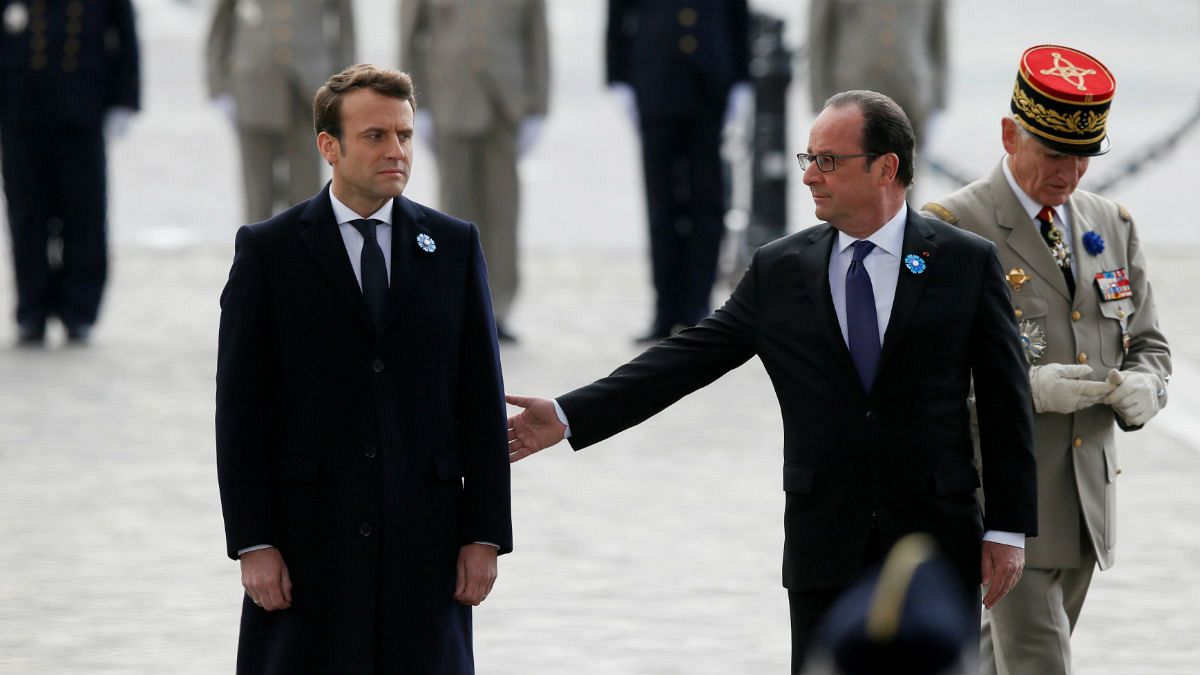By Giles Merritt, editor of Europe’s World and secretary-general of the think tank Friends of Europe
The writing is on the wall: After six decades, France’s Fifth Republic looks set to give way to a sixth. Sooner or later, such an upheaval could become the chief outcome of Emmanuel Macron’s election victory.
The arrival of a centrist, pro-Europe technocrat in France’s powerful presidency is being widely hailed as auguring a turnaround in the European Union’s fortunes. In fact, it may turn out to be anything but, with serious consequences for France itself and for hopes of a revival of the EU’s popularity.
Even while the votes were being counted and the scale of Macron’s win was becoming clear, the noisy election night debates between France’s warring politicians pointed to an increasingly uncertain future. Macron’s presidency will rely on the degree of consensus within the National Assembly, and that has been in short supply in recent years.
Macron has no clearly defined political constituency of his own, and unless he can create one in the space of a single month, his five years in the Élysée Palace will be hostage to struggles among the left, right, and extreme right. Macron’s resounding defeat of the National Front’s Marine Le Pen has led to many an epitaph for France’s major political parties. But next month’s parliamentary election will put this to the test, and the institution of the presidency itself may well be the main loser.
Macron’s movement, La République En Marche!, is so new that it has no parliamentary seats at all, and it probably lacks the political machinery needed to win many. So far*, La République En Marche!* has mobilized anti-Le Pen votes just as much as it has won pro-Macron ones.
Yet the notion has taken root that Macron’s win shows a fundamental shift in French politics. The compelling legend is that within the space of a year, La République En Marche!, headed by a virtually unknown figure, has humiliated established leaders and swept to power on a wave of popular enthusiasm for a political outsider.
There is some truth in this, but not much. While it is true that presidential elections in an age of social media and infotainment are as much about personalities as they are about party loyalties, perhaps more so, parliamentary elections are much less likely to follow this template.
The presidential candidates of the traditional center-left Socialist Party and the center-right Republicans were indeed trounced by Macron, but that doesn’t necessarily mean the grassroots appeal of either party has suddenly evaporated. The Socialists are certain to lose their substantial parliamentary majority – 280 of the National Assembly’s 577 seats – next month, and the Republicans may well lose some of their 194 seats. But both parties have the muscular local political machinery needed to win parliamentary seats. They may be down following their presidential candidates’ defeat in the first round of the presidential election, but they most definitely are not out.
How many seats either will have after the mid-June parliamentary elections is anyone’s guess. Benoît Hamon, the Socialists’ hapless presidential candidate, crashed out of the first round with just over 6% of the vote. The Republicans’ François Fillon, at one point the frontrunner before being brought down by scandal, did better, with about 20%.
The message being emphasized by Macron’s supporters is that, historically, incoming presidents have been able to convert their electoral support into parliamentary seats. That, of course, is because all were candidates of the left or the right.
It remains to be seen whether Macron can cobble together a cross-party parliamentary coalition and avoid “cohabitation” with a cabinet that answers to a hostile majority. It seems unlikely that the Socialists and Republicans could be coaxed into joining forces, and if Macron has to rely on a left-wing coalition of some sort, the outlook for the Fifth Republic as an institution will be in doubt.
The Fifth Republic was introduced by Charles de Gaulle in 1958 to end the fragmentation and chaos of the post-World War II Fourth Republic, which over 12 years produced 24 governments and 16 prime ministers. The Fifth Republic has, however, since come to be seen by many as enshrining an unsatisfactory concentration of powers.
Politicians on the left have long urged moving to a Sixth Republic, a goal that topped the manifestos of both Hamon and the far-left presidential candidate Jean-Luc Mélenchon. Ten years ago, the unsuccessful Socialist presidential candidate Ségolène Royal backed the idea, and so, too, had François Mitterrand in the early 1980s, though he dropped it on becoming president, and ruled in as haughty a manner as de Gaulle.
Institutional reform is still very much in the air. Both Macron and Le Pen pledged themselves to a radical streamlining of the bloated National Assembly. Le Pen said she wanted to pare the parliament to 300 seats and reduce the number of Senate seats from 348 to 200. Macron has committed to a similar culling.
France’s new president has lost no time in acknowledging voters’ dissatisfaction and the continuing lure of populism. But now, as Macron attempts to translate his victory into a viable government, the fates of the National Assembly, the Senate, and the Fifth Republic itself may well be at stake. And unless he consolidates power quickly and durably, Europe, which is running out of time, will have to wait.
Giles Merritt, Editor of Europe’s World and Secretary-General of the think tank Friends of Europe, is the author of Slippery Slope: Europe’s Troubled Future.
Copyright: Project Syndicate 2017
The views expressed in opinion articles published on euronews do not represent our editorial position
